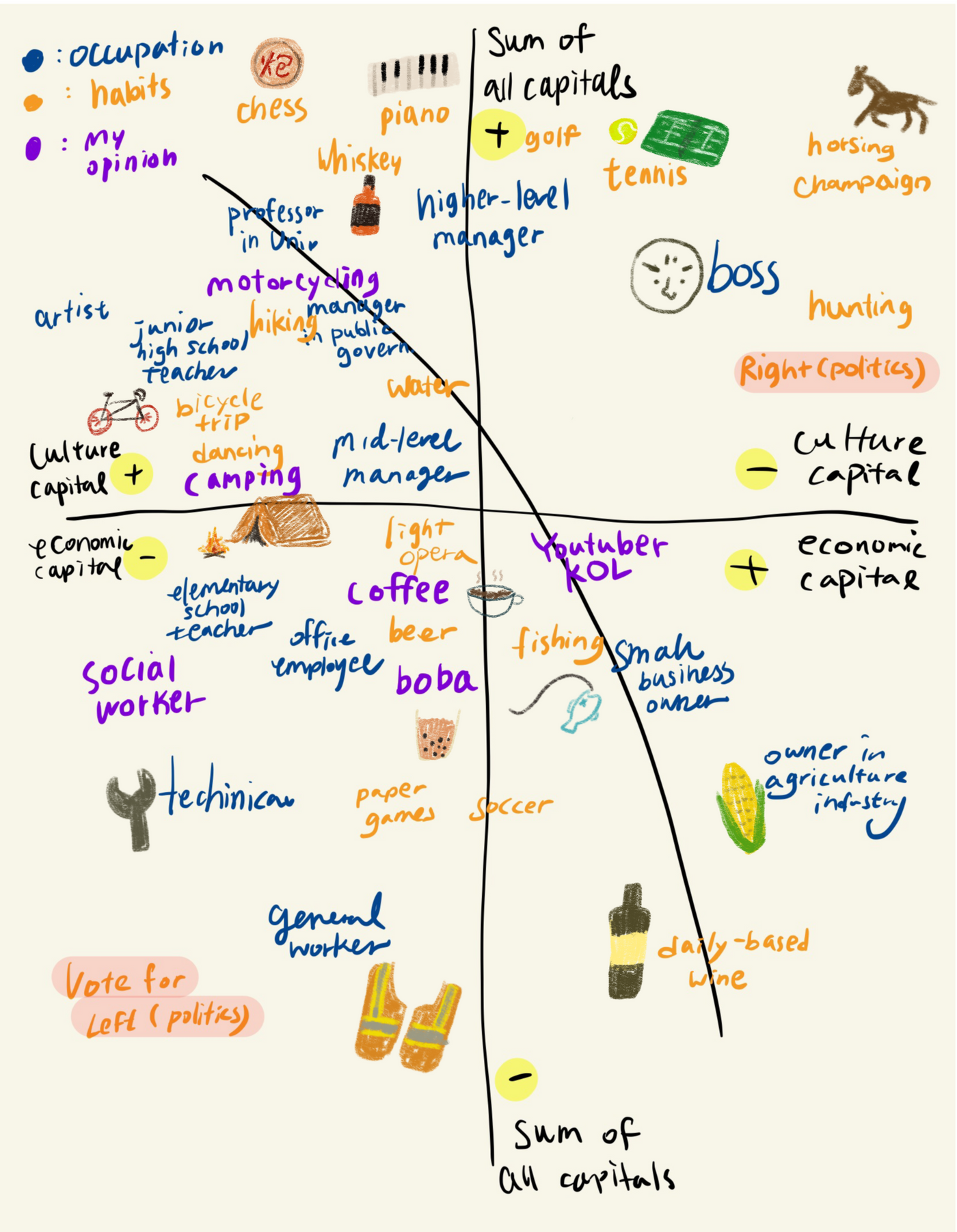
ᴄᴜʀɪᴏsɪᴛʏ | ʟɪᴠɪɴɢ ɪɴ ᴄᴀ|記錄一些在洛杉磯的生活點滴 哦對,喜歡動筆寫字與畫畫、看書,活生生的筆記控,正在尋找自己的創作風格中 愛畫畫 ig@hi.littleidea 蝸居: janesu.studio 隨筆紀錄 fb@san3pollos
Global Education: A Comparative Perspective of Taiwanese and Immigrants in the U.S.—On the Nature of Work

I saw this video by accident and watched it with curiosity. Some of the data are very interesting. According to a 2010 survey, the average income of Taiwanese residents is higher than that of the general American residents, but it corresponds to 50% of the half-disabled English proficiency. I think it's cute.
Before I moved to Los Angeles, I really felt that I needed a little English to survive in America. But after I really came to Los Angeles, I felt that I could say to my elders in Taiwan, "Don't worry, you can communicate in Chinese in California (especially Los Angeles), so don't be afraid."
Then there is a comparison between the middle class and the working class in the film, which is full of realism.
In the environment where I work now, I see people working in factories, which reminds me of my memories of working and traveling in the park before - clocking in to work, sitting in a rest area eating junk food during breaks, and then after work at night A bus, back to the dormitory, I said it was the prison bus at that time.
From that moment on, I told myself to absolutely avoid making money with labor. Fortunately, at least in my current state, I haven't broken my promise.
In my narrow perception, Taiwanese generally hold positive views on immigration or the possibility of going abroad, including me. But when I'm in America now, and I meet different people and hear different voices and stories, I don't feel like it's so glamorous and I have to reject this gilded hypothesis. In short, people still conform to this general rule: where there is money, where to run. Nothing is absolute, it's all comparative.
What I've been thinking about lately is, what is the nature of work?
I know it well because I don't have that much passive income to support my spending. I also know that some people have to earn money to support their families, so they have to work.
If one day the public can praise those who exile themselves and condemn those who work hard, what would that society look like?
For me right now, work is the opportunity cost of being happy. But what happens to the opportunity cost of happiness when work is taken away? Will it still exist? (I think it should still exist)
In fact, sometimes I feel that I have to be thankful for my work. It makes me think about more things, it makes me better understand the world and how society works, such as how other people think, how groups interact (or intrigue) , these are valuable elements that stimulate my thinking. I remember when I first started working as a rookie office worker, at that time I thought, "Going to work is kidnapping your body, and going to school is kidnapping your mind."
But later I found out.... Going to work is not only the body, but also the mind is imprisoned . Going to school is the time to be free-spirited.
Seven days a week, most people work five days and only have two weekends off, which is really not a very healthy pattern. After the hybrid work mode experience, I think it is a good match to do three breaks and four!
Ha, having said all this, the conclusion is that I am looking for various escapes for myself who don't like work.
Additional supplement: Later, I read other articles written by Professor Lan, and realized that Bourdieu, a sociologist, this picture of his is very interesting, using the concept of capital to describe social people and things (occupation, interest, diet). It should be a long time ago when this concept was proposed, so I added my own ideas, but generally the original people and things still exist (have not been replaced).

thanks for reading:)
Like my work?
Don't forget to support or like, so I know you are with me..
Comment…